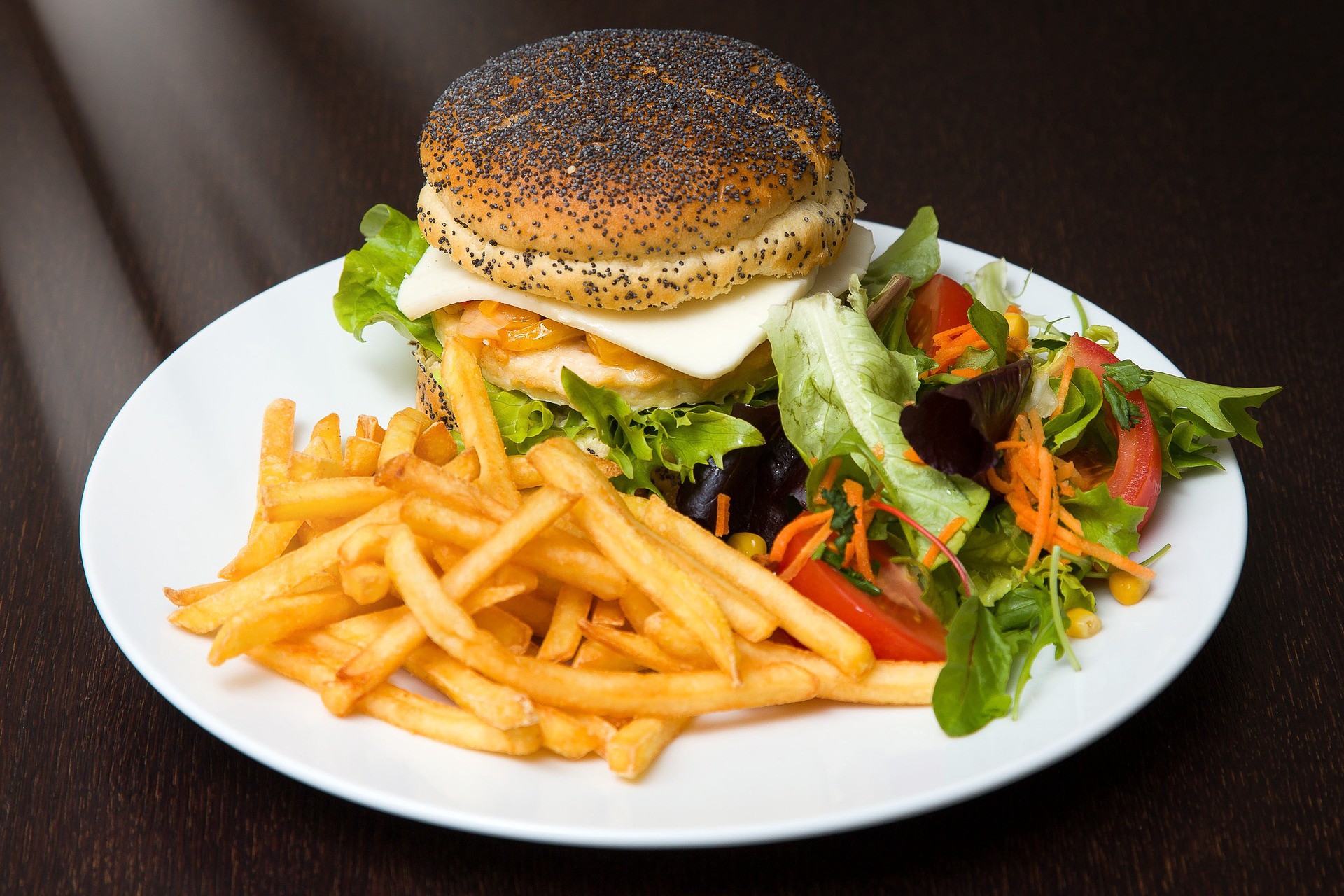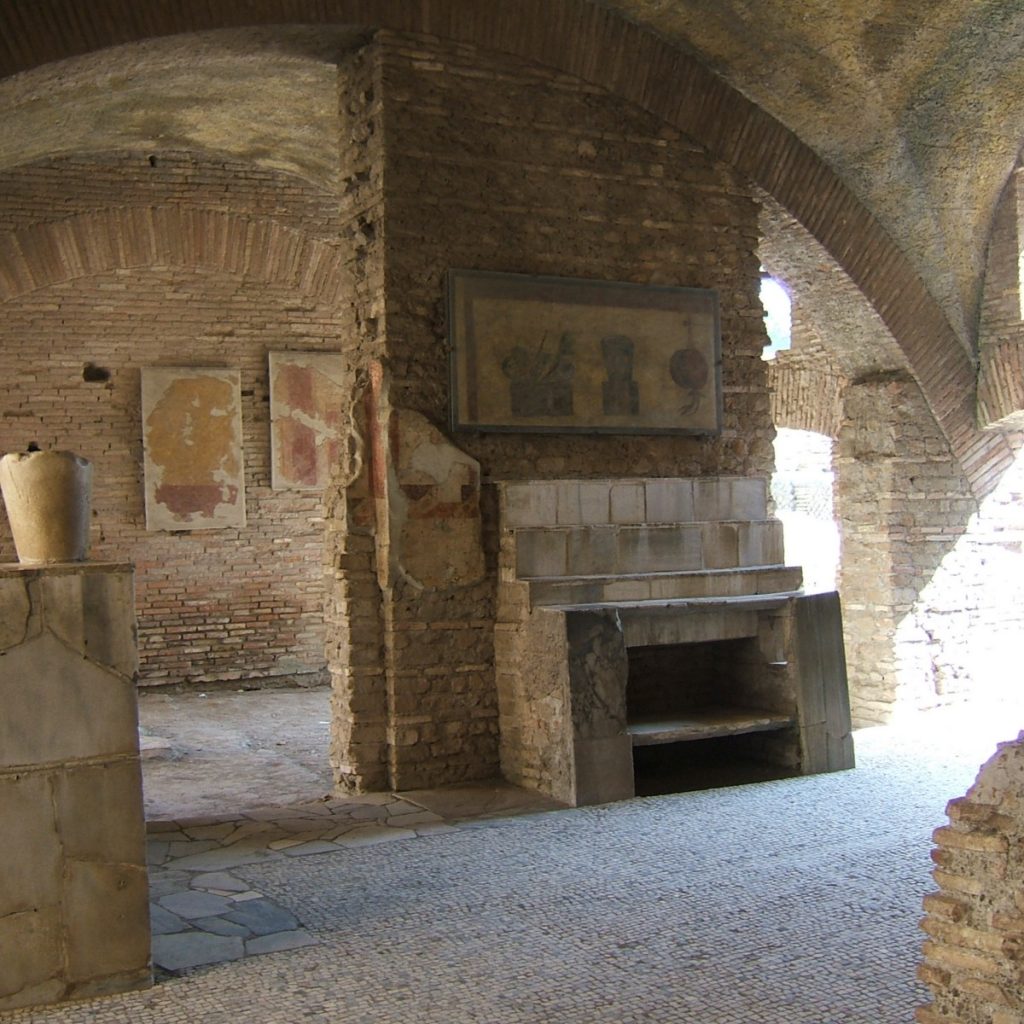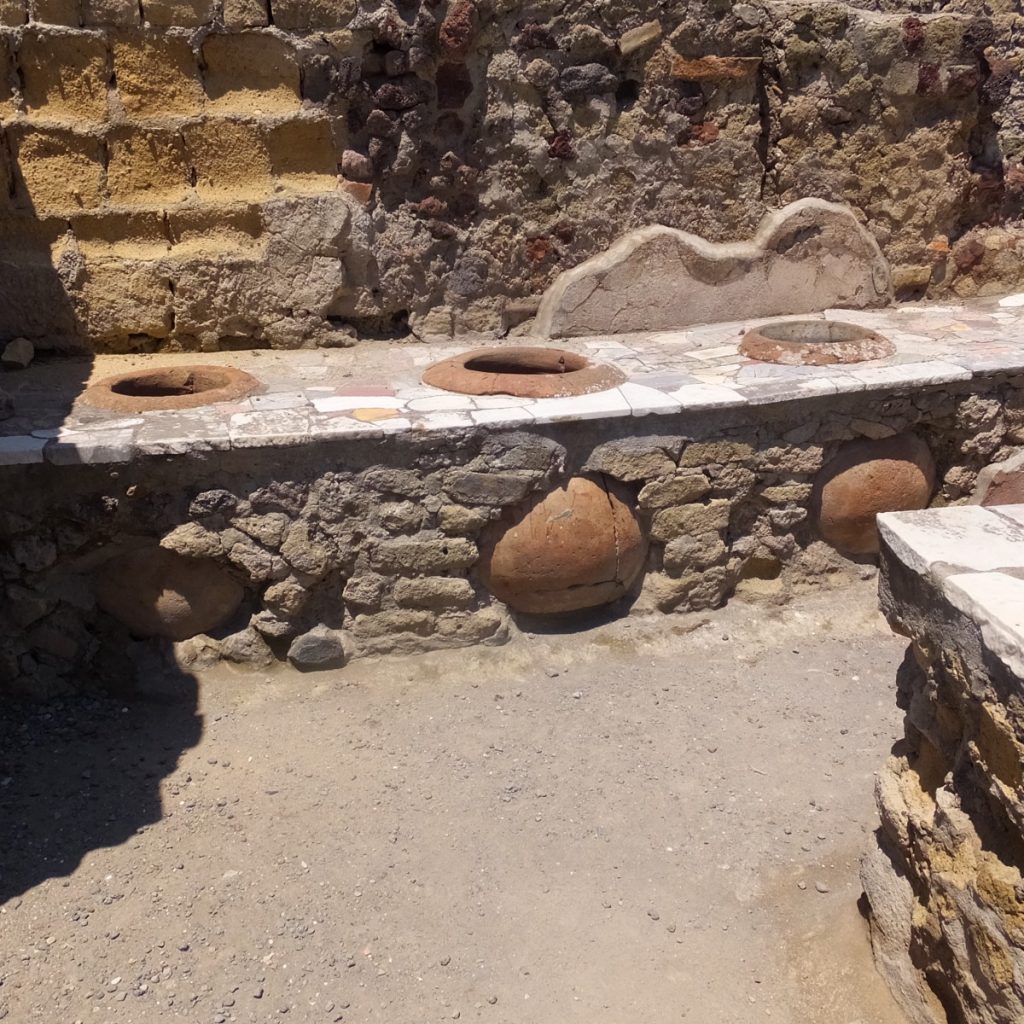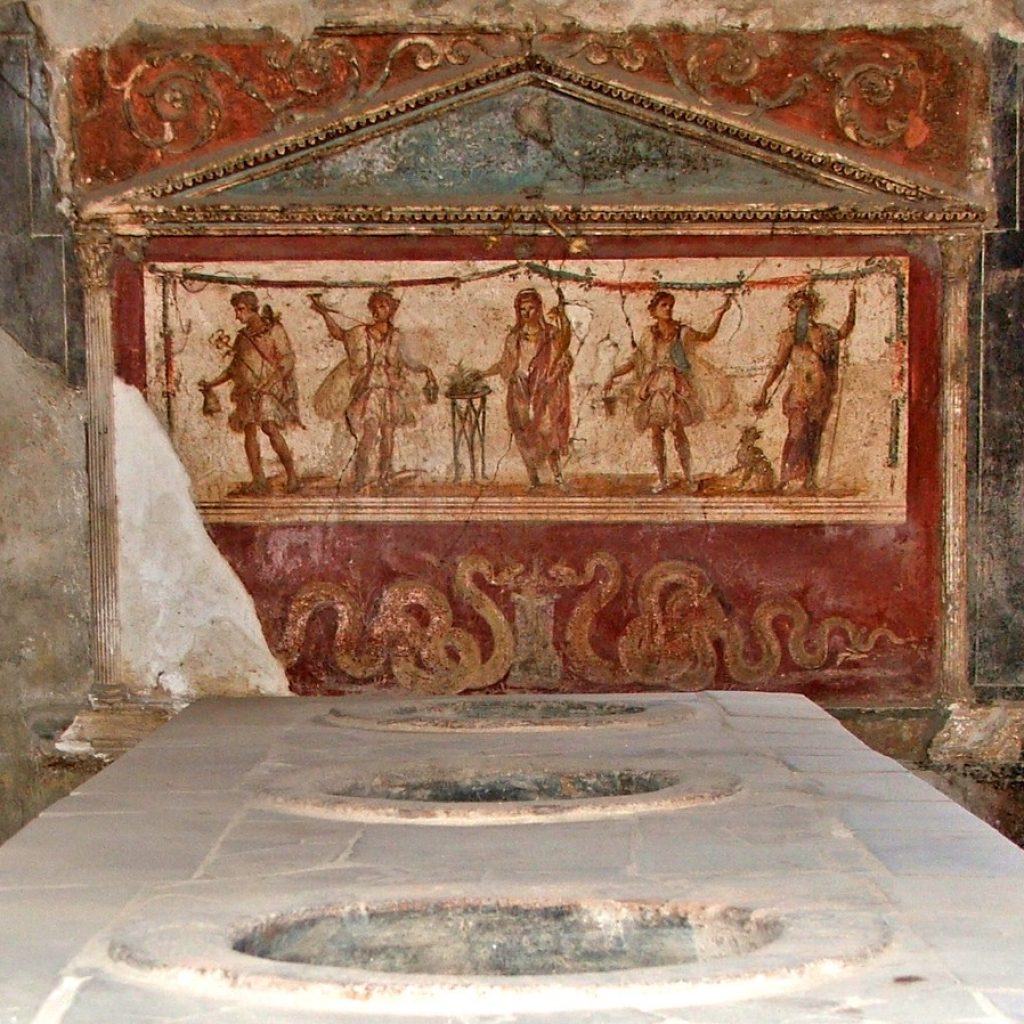Like Fast Food? So Did the Ancient Romans

According to a study by the CDC 1/3 of American adults eat out on any given day. That’s 84.8 million people chomping on chicken, fries, doughnut burgers, and tofu McNuggets. All those happy people eating happy meals — it’s amazing how far we’ve come since the first chains opened in the 1900s.
Yet way before America was even a thing, Ancient Romans conquered the dilemma of on the go snacking with the invention of thermopolia. Places where you could get hot food and drinks fast and cheap. In fact, the name literally translates to a place where hot stuff is sold. Hungry shoppers could stop by and pick up things like fish, lentils, or meat. Need a warm drink? How about a Calda? This was a mix of hot water, wine and spices kept warm and cozy in a fancy urn.

A sweet little dream of the local Thermopolium
Maybe you’re imagining stopping off at the Thermopolium with the kids after a busy day of dance classes and soccer games. Dad would come over from the office, and you’d even invite that sweet old lady who gave you a hand-knit baby blanket last Christmas.
Well, just stop that dream right in its tracks, because Thermopolia didn’t feature clowns, or cute dogs speaking Spanish. In those days not everyone could afford to cook at home. First off you need running water and an oven, things not as easy to get as they are today. Storing and preserving weren’t quite so easy for the average Atticus either. The poorer classes could keep things like bread, cheese, and fruit; but let’s face it- sooner or later a person’s gonna want a nice hot meal.
And so it happened that those gathering at the local thermopolium were often vagabonds and those a tad on the creepy side. The Roman historian Ammianus Marcellinus* wrote thermopolia were places where the lowest classes spent the night. He also claimed men gambled, fought over chariot races and — most unpardonable — snorted through their noses while laughing. Certainly, not a good example for Sally and Timmy.

Thermopolia in living color
Thermopolia may not be the places you first imagined, but they’re still pretty fascinating and would have been a regular sight in ancient Rome. Ruins have been found in cities such as Ostia, Pompeii, and Herculaneum. In fact, if you lived in Pompeii–you know, before it got buried in lava—you would be privy to not one, but around 150 different thermopolia. All of them tended to be located at important intersections and had similar layouts.
Patrons would have entered through a broad doorway that opened onto the street. The first thing they would see was an L or U shaped counter with large terra cotta vessels known as dolia sunk into them. Then, of course, there would be the kitchen, with more jars and a built-in stove. Stools, tables and triclinia ( a table with couches along three sides) were available for those who wanted to hang around. Some had outside seating complete with gardens. Many people would have just gone for takeout, however, no matter how well the flowers were blooming.
Just like modern life, some joints were fancier than others. You might find nicely frescoed walls, sometimes depicting images that served as advertisements. Counters could be made of colorful marble or stone instead of plain old masonry, and fountains might grace the courtyard.

And the Living is Good
Household gods would get their due as well. Excavations at the thermopolium of Vetutius Placidus found a lararia or household shrine at the end of the counter. On the wall is a fresco of the gods Lares and Penate who protected and guided the members of the household. Mercury, the god of commerce; and Bacchus, god of wine, show their lovely faces as well. The house of Vetutius is attached to his shop and is also painted with frescos. 6.6 pounds of coins were found stored in a clay jar, giving him enough money to pay for all that art.
As cool as the Romans are, they weren’t the only ones to have fast food. The Ancient Greeks had them too, although they went by the name kapeleion over there. Evidently, they had a similar reputation. Kapeleila, and the staff that worked there were often the targets of jokes. Barkeepers, in particular, were presented as unscrupulous swindlers. Owners were even mentioned in a list of disreputable occupations. Right next to pimps.
Notes and Sources:
Yes doughnut burgers and tofu McNuggets are actually a thing
*Marcellinus used the term tabernae vinariae. Other names included caupona and popina.
http://citeseerx.ist.psu.edu/viewdoc/download?doi=10.1.1.729.310&rep=rep1&type=pdf
https://www.karwansaraypublishers.com/ahblog/a-roman-tavern-in-herculaneum/
https://archaeologydataservice.ac.uk/archives/view/assemblage/html/6/Kelly_web.html
http://penelope.uchicago.edu/~grout/encyclopaedia_romana/wine/thermopolium.html
http://pompeiisites.org/en/archaeological-site/house-and-thermopolium-of-vetutius-placidus/


Leave A Comment